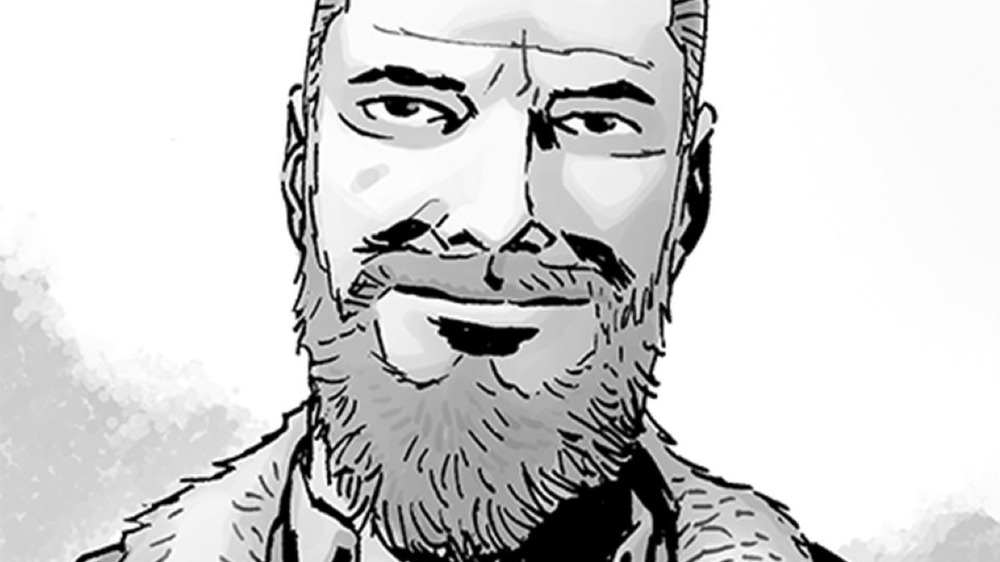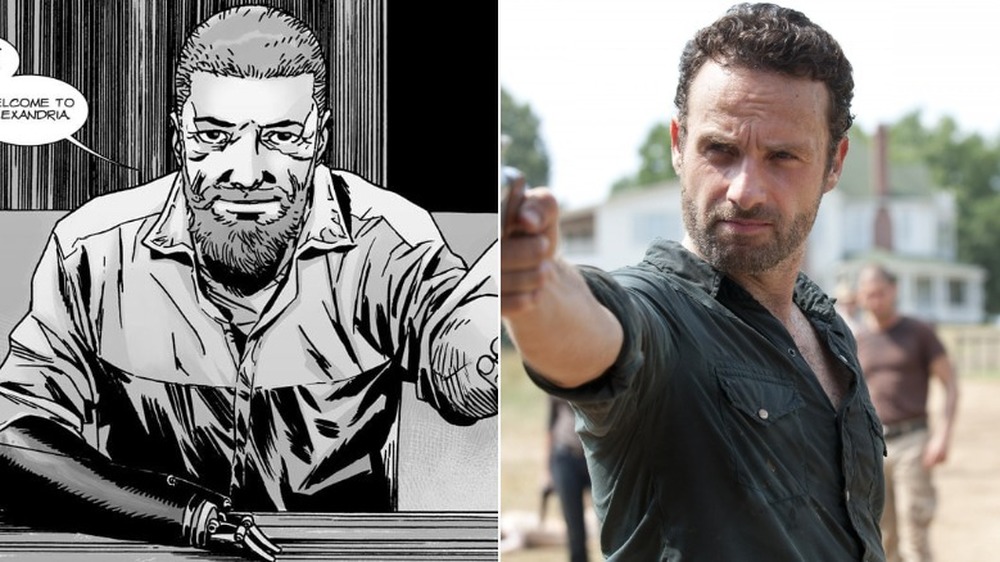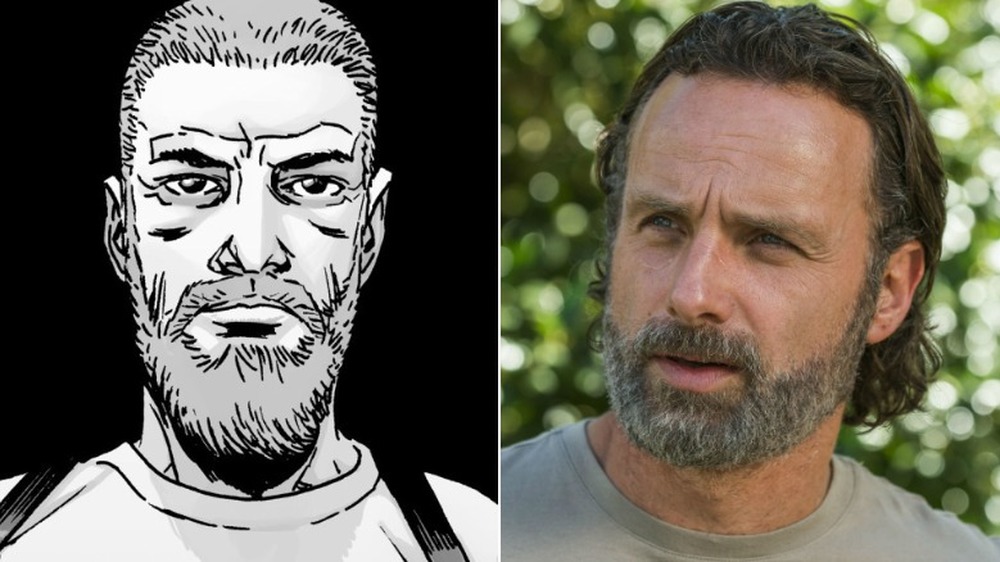What Only Comic Book Fans Know About The Walking Dead's Rick Grimes
AMC's The Walking Dead is adapted from the Image Comics series of the same name by Robert Kirkman, Tony Moore, and Charlie Adlard. Both versions share a premise: A police officer named Rick Grimes (portrayed by Andrew Lincoln on the show) is wounded in the line of duty and falls into a coma, only to wake up about a month later to a world infested with flesh-eating undead, often called walkers. The two media properties share plenty of similarities beyond that, but there are just as many differences — if not more.
Some of these differences are relatively minor, like how the characters look; more substantial changes have to do with who they really are. It's only natural, since the show is written by a group of screenwriters, whereas no one but Kirkman scripted the comics from beginning to end. Rick is the perfect example of this discrepancy, as fans of The Walking Dead on Reddit aptly pointed out in a recent thread.
Spoilers for The Walking Dead show and comic ahead!
There are physical differences between the two Ricks
Redditor AwakenedSam is quick to note some of the physical differences between the Rick as drawn by Adlard (Moore signed off the series after six issues) and the Rick portrayed by Lincoln. "Comic Rick... has straight hair," the Redditor says, "while show Rick has curly hair. Comic [Rick's] hair is also a much lighter brown." The comics were originally published in black and white, but Rick's hair color is confirmed by the colored issue covers, as well as Dave McCaig's beautiful coloring of the series in the reprint The Walking Dead Deluxe.
More importantly, comic-Rick sustains a number of horrific injuries that show-Rick never does. The most infamous of these incidents occurs in issue #28, not long after Rick, Glenn, and Michonne meet the self-titled Governor, who wants information about their settlement. When all he gets is silence, he brings down a butcher knife on Rick, chopping his right hand clean off. The show skirts around the scene due to budgetary restrictions (though Aaron, portrayed by Ross Marquand, eventually loses his hand), but it forces comic Rick to adapt to the life of a lefty. Earl Sutton, blacksmith of the Hilltop, eventually makes him a prosthetic replacement; it's far from as advanced as, say, Luke Skywalker's hand from Star Wars, but it gets the job done.
There are personality differences, too
Redditor u/AwakenedSam also touched on a few of the personality differences between the two versions of the character, drawing particular attention to their differing approaches to combat. Show-Rick is quick to throw hands, often seen on the front lines during big battles or duking it out with his enemies. Comic-Rick, on the other hand (no pun intended), "is always in the back, strategizing and planning." That's not to say he never sees action up close and personal, but he would generally rather put his mind to use than his fists.
AwakenedSam's statement that comic Rick is more flawed than his show counterpart is met with opposition in the comments section, but that's more subjective than the rest of this debate. AMC's The Walking Dead generally follows Kirkman's comics, but the key word there is "generally." That means each iteration of Rick is dealing with different situations in different ways.
The incident with Shane, Rick's best friend, is a solid example. In the comics, he dies relatively quickly, shot by Rick's son Carl in issue #6; in the show, Jon Bernthal portrays the character for two whole seasons, a run that more or less equates to the comic's first 54 issues. It could be argued that, in a way, Daryl (Norman Reedus) fills the Shane-sized void on the show, but he doesn't exist in the comics, meaning everything he brings out in show-Rick doesn't exist in the comics, either.
Rick's romantic relationships also differ between the two versions. Both start out married to Lori (Sarah Wayne Callies), and both experience a brief spark with Jessie Anderson (Alexandra Breckenridge), but the women they end up with are completely different: Andrea in the comics, Michonne (Danai Gurira) on the show. Show-Michonne is fairly similar to comic Michonne, but AMC's take on Andrea may as well be a new character. Throw in the fact that Rick and Lori's daughter Judith (Cailey Fleming) is alive on the show, while their son Carl makes it all the way to the last panel of the comics, and you've got two very different family situations.
The point is, the people Rick does and doesn't get to know form the main wedge between Kirkman's original character and AMC's adaptation. Both are interesting in their own right, so when choosing a favorite, it's mostly a matter of whether you prefer to read or watch TV.


